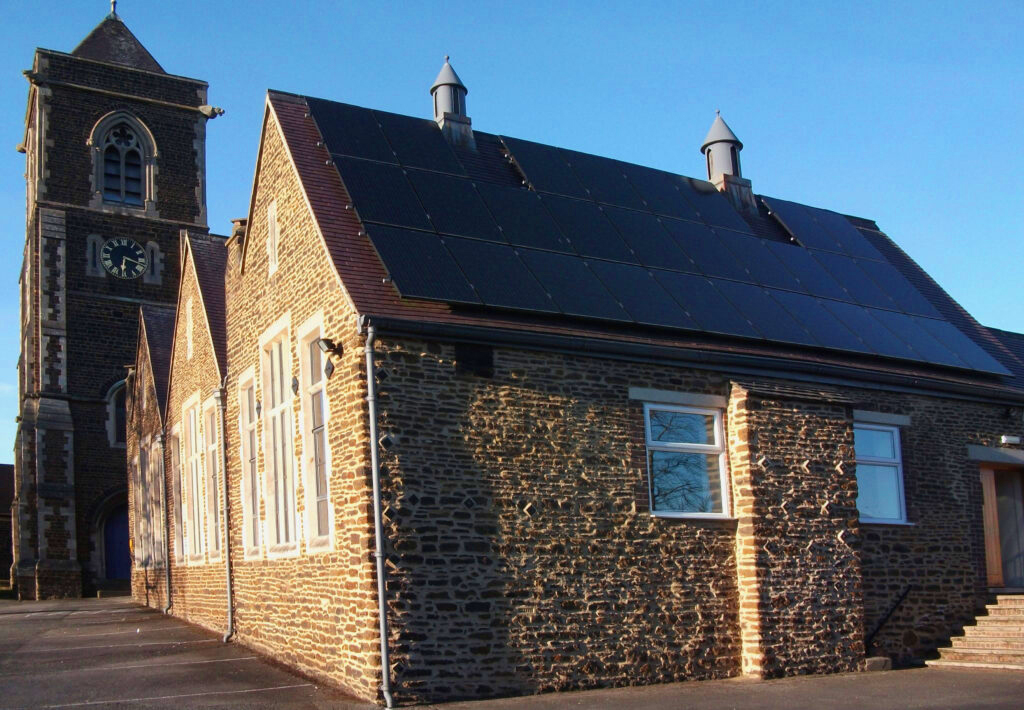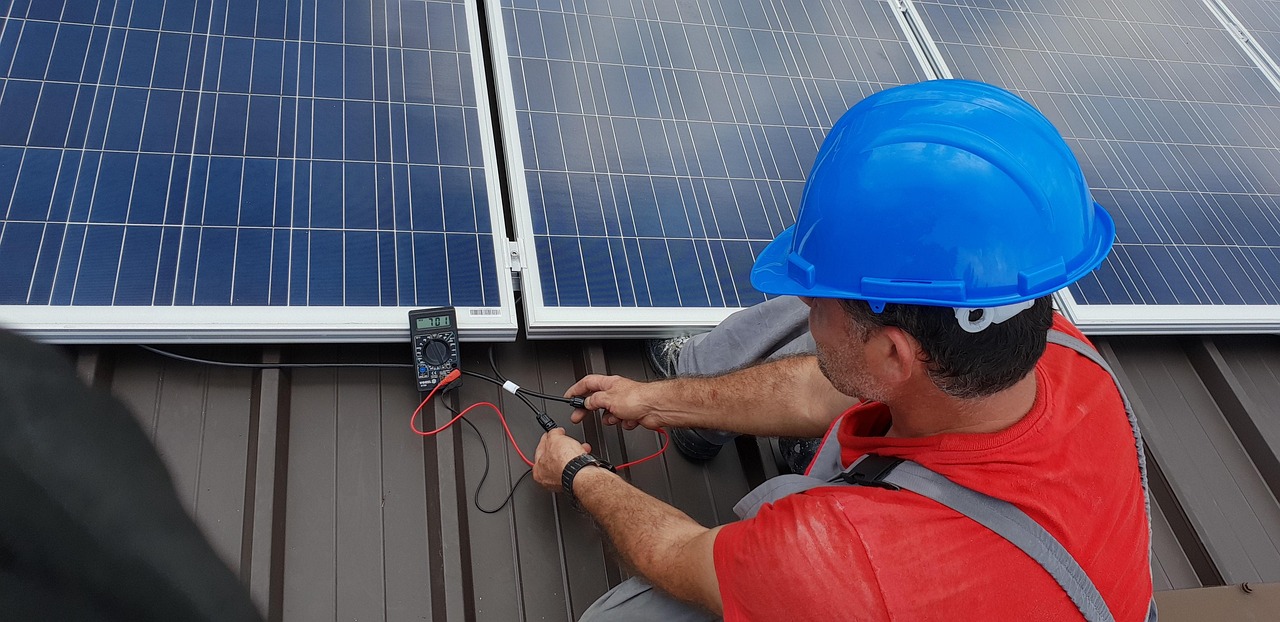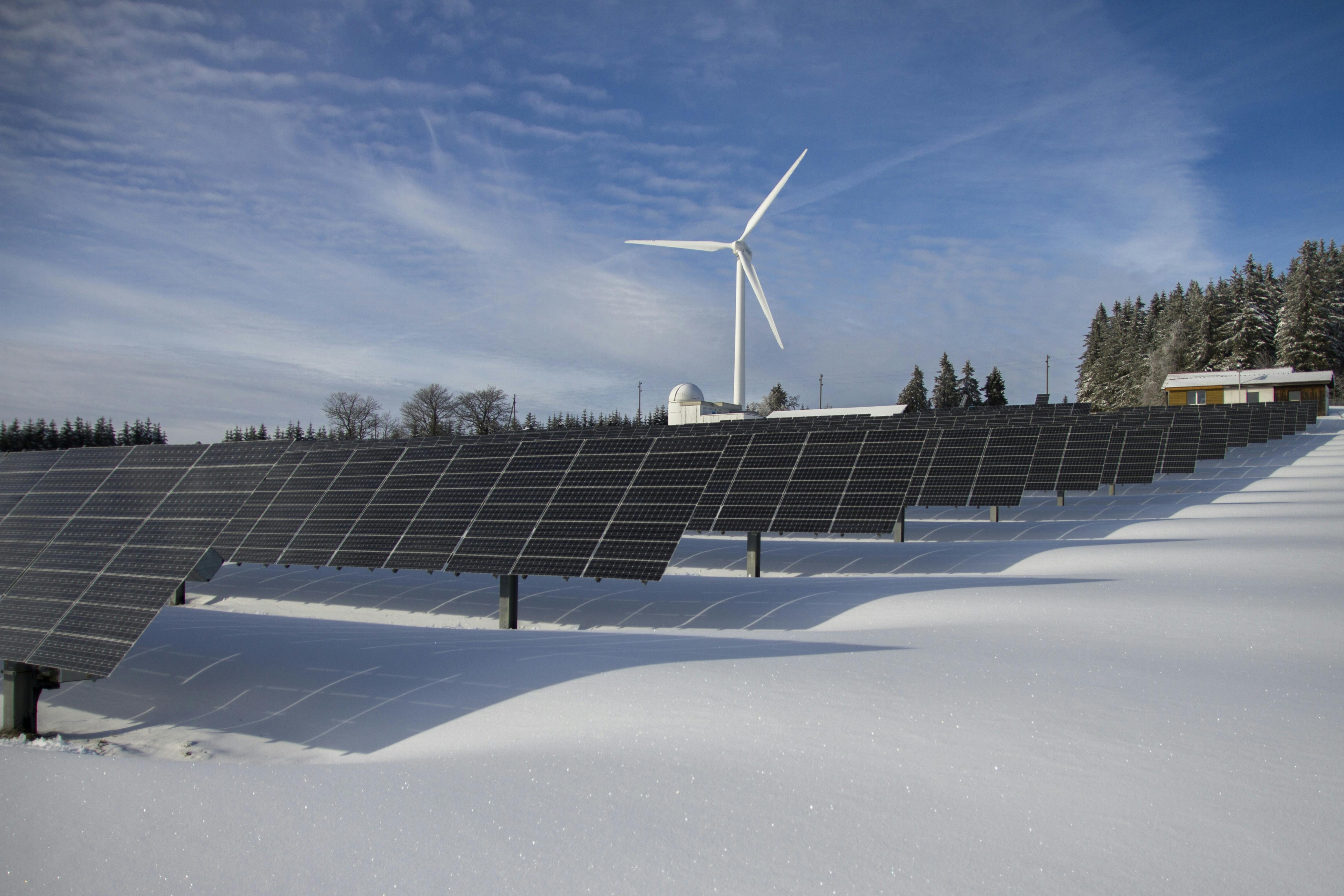Will Solar Panels Improve my EPC Rating?
Discover how installing solar panels can improve your EPC rating, enhance energy efficiency, and reduce costs.

In short, yes, installing solar panels can positively impact your EPC rating. By reducing electricity consumption from the grid and increasing your home's overall energy efficiency, solar panels can help improve your property's energy performance score.
In this article, we will explore how solar panels can improve your EPC rating, explain what an EPC rating is, and discuss the benefits of enhancing your EPC score with solar panels. We will also guide you on how to get started with solar panels, explore other methods to improve your EPC rating, and highlight the overall advantages of making these energy-efficient upgrades.
Key Takeaways:
Can Solar Panels Improve My EPC Rating?
Yes, solar panels can significantly improve your EPC rating. The primary way they achieve this is by reducing your home's reliance on electricity from the grid. Solar panels generate electricity from sunlight, which means that your home consumes less energy from non-renewable sources. This reduction in grid electricity usage is a crucial factor in calculating your EPC rating, as lower energy consumption from the grid typically translates to a higher score.
Additionally, solar panels contribute to your home's overall energy efficiency. The energy produced by the panels can be used to power various household appliances and systems, reducing the amount of energy lost through transmission and improving the overall efficiency of your home’s energy usage.
A typical home can move from a D rating to a C rating after installing solar panels, depending on the size of the system and the home's initial energy performance. This improvement not only benefits the environment but also increases the property’s market value and appeal to potential buyers or renters.
What is an EPC Rating?
An Energy Performance Certificate (EPC) is a document that provides a detailed assessment of a property's energy efficiency. It is required for homes that are being built, sold, or rented, and gives prospective buyers or tenants an idea of the property's energy use and potential savings on energy bills.
How is an EPC Rating Calculated?
The EPC rating is calculated based on various factors that contribute to a property's energy efficiency. These include:
Insulation: The effectiveness of the insulation in walls, roofs, and floors.
Heating Systems: The efficiency of the heating systems, including boilers, heat pumps, and radiators.
Hot Water Systems: The efficiency of hot water systems and any renewable technologies such as solar water heating.
Windows and Doors: The energy performance of windows and doors, including double glazing and draught-proofing.
Lighting: The use of energy-efficient lighting throughout the property.
Renewable Energy Sources: The presence and efficiency of renewable energy sources, such as solar panels or wind turbines.
Each of these factors is given a score, and these scores are combined to give an overall energy efficiency rating for the property, which is presented on a scale from A (most efficient) to G (least efficient).
By improving these aspects, homeowners can enhance their EPC rating, leading to better energy performance and potentially lower energy bills. Installing solar panels is one of the most effective ways to improve an EPC rating, as it directly reduces the amount of non-renewable energy the home requires.
The Benefits of Improving Your EPC Rating with Solar Panels
Improving your EPC with solar panels not only enhances your home's energy performance but also offers a variety of benefits that can positively impact your finances, the environment, and compliance with regulations.
Financial Benefits
Potential Increase in Property Value: Homes with higher EPC ratings are often more attractive to buyers and renters. An improved EPC rating can increase your property's market value, making it a more appealing investment.
Savings on Energy Bills: Solar panels generate electricity from sunlight, significantly reducing your reliance on grid electricity. This can lead to substantial savings on your energy bills over time, offsetting the initial installation costs of the solar panels.
Increased Marketability: Properties with solar panels and higher EPC ratings are more marketable. Potential buyers and renters are increasingly looking for energy-efficient homes to save on utility bills and reduce their environmental impact, making your property stand out in the market.
Environmental Benefits
Reduction in Carbon Footprint: By using solar energy, you reduce your home's carbon emissions. Solar panels generate clean, renewable energy, which helps decrease your reliance on fossil fuels and lowers your overall carbon footprint.
Contribution to Renewable Energy Goals: Installing solar panels supports broader renewable energy targets and contributes to a more sustainable future. This collective effort can help combat climate change and promote environmental stewardship.
Compliance with Regulations and Potential Incentives
Meeting or Exceeding Energy Efficiency Standards: Improving your EPC rating with solar panels can help you meet or exceed local energy efficiency standards and building regulations. This can be particularly important if future regulations become more stringent.
Eligibility for Government Incentives and Rebates: The government occasionally offers incentives and rebates for installing solar panels and improving energy efficiency. These financial incentives can help reduce the upfront costs of solar panel installation and provide ongoing savings.
Future-Proofing Your Home: By improving your EPC rating with solar panels, you future-proof your home against rising energy costs and potential regulatory changes. This ensures your home remains compliant and efficient for years to come.
How to Get Started with Solar Panels
If you're considering installing solar panels to improve your EPC rating and overall energy efficiency, here are the steps to get started:
Assess Your Home’s Energy Needs
Begin by evaluating your current energy consumption and identifying your goals for solar energy. Understanding your energy needs will help you determine the appropriate size and type of solar panel system for your home. You can review your electricity bills to get an idea of your average energy usage.
Get an EPC Assessment Before and After Installation
To accurately measure the impact of solar panels on your EPC rating, it’s essential to get an EPC assessment before and after the installation. This will provide a clear comparison and demonstrate the improvements in your home's energy performance. A certified energy assessor can conduct these assessments and provide detailed reports.
Research Solar Panel Options
There are various types of solar panels available, each with different efficiencies and costs. Research the different options to find the best fit for your budget and energy needs. Consider factors such as panel efficiency, warranty, and overall cost. Consulting with solar energy experts, such as MakeMyHouseGreen, can help you make an informed decision.
Get a Price Estimate
To get a personalised cost and savings estimate for installing solar panels, use MakeMyHouseGreen’s solar panel calculator. Our tool will help you understand the costs, potential financial benefits and ensure you make an informed decision about your solar energy investment.
Find the Right Installer
Choosing a reputable installer is crucial for ensuring a successful solar panel installation. Look for certified and experienced professionals who have positive reviews and a proven track record. MakeMyHouseGreen can connect you with trusted, certified installers to ensure your system is installed to the highest standards.
Other Ways to Improve Your EPC Rating
While installing solar panels is an excellent way to enhance your EPC rating, there are several other methods you can employ to improve your home’s energy performance. Combining these strategies with solar panels can lead to even greater efficiency and savings.
Upgrade Insulation
Effective insulation is essential for keeping indoor temperatures comfortable and minimising energy use. Upgrading the insulation in your walls, roof, and floors can significantly improve your EPC rating. Insulation helps keep heat in during the winter and out during the summer, reducing the need for heating and cooling.
Install Energy-Efficient Windows and Doors
Replacing old, single-pane windows with double or triple-glazed windows can dramatically reduce heat loss. Similarly, installing energy-efficient doors with proper seals can prevent drafts and improve your home’s thermal efficiency. These upgrades can contribute to a higher EPC rating by enhancing the overall insulation of your home.
Use Energy-Efficient Lighting
Switching to energy-efficient lighting, such as LED bulbs, can reduce your electricity consumption and improve your EPC rating. LEDs use significantly less energy than traditional incandescent bulbs and have a longer lifespan, leading to lower energy bills and maintenance costs.
Upgrade Heating Systems
An efficient heating system can make a substantial difference in your home's energy performance. Consider upgrading to a modern, high-efficiency boiler or installing a heat pump. These systems use less energy to heat your home and can improve your EPC rating by reducing your overall energy consumption.
Improve Hot Water Systems
Installing an energy-efficient hot water system, such as a solar water heater or a high-efficiency tankless water heater, can reduce your energy usage. These systems heat water more efficiently, providing hot water on demand without the energy loss associated with traditional water heaters.
Install Smart Thermostats
Smart thermostats enable more efficient management of your heating and cooling systems. They learn your schedule and adjust the temperature accordingly, ensuring that energy is not wasted when heating or cooling is not needed. This can lead to significant energy savings and an improved EPC rating.
Final Thoughts
Improving your EPC rating with solar panels is a smart investment that offers numerous benefits, including enhanced energy efficiency, significant cost savings, and a reduced carbon footprint. Solar panels can significantly improve your EPC rating by reducing your reliance on grid electricity and increasing your home's overall energy performance.
By following the steps we’ve outlined in this article, you can successfully enhance your EPC rating, making your home more energy-efficient and environmentally friendly. Take the first step towards a more sustainable home by exploring your solar energy options and consulting with MakeMyHouseGreen. For a personalised cost and savings estimate, use our solar panel calculator and start your journey to a greener future today.
Ready to see what you can save?
Our solar calculator is 100% free to use. Enter your postcode below to get started.

Based on 400+ Trustpilot reviews






